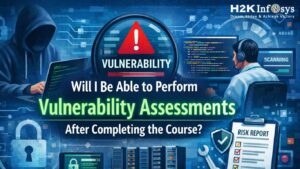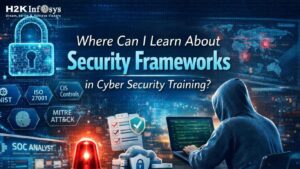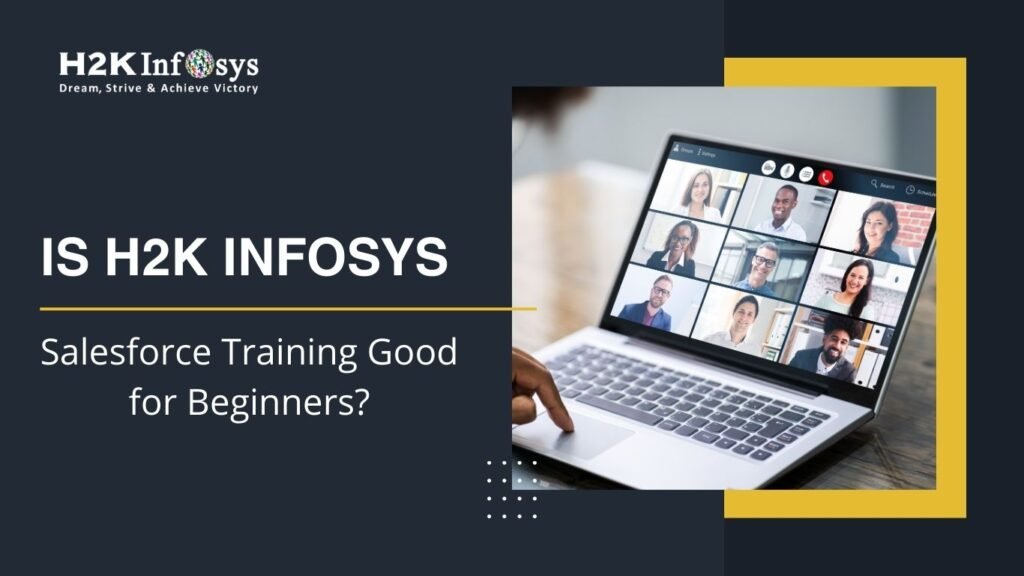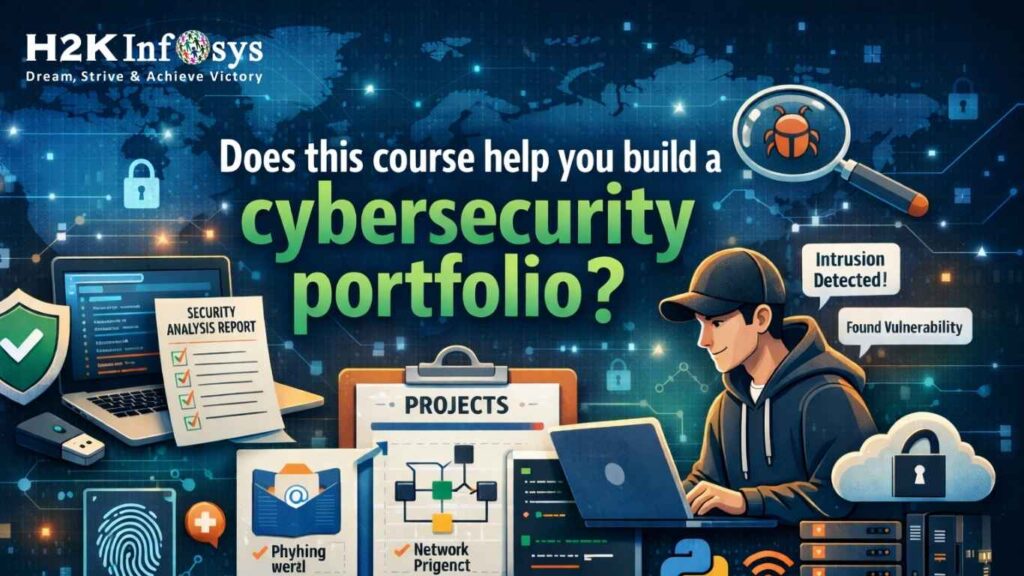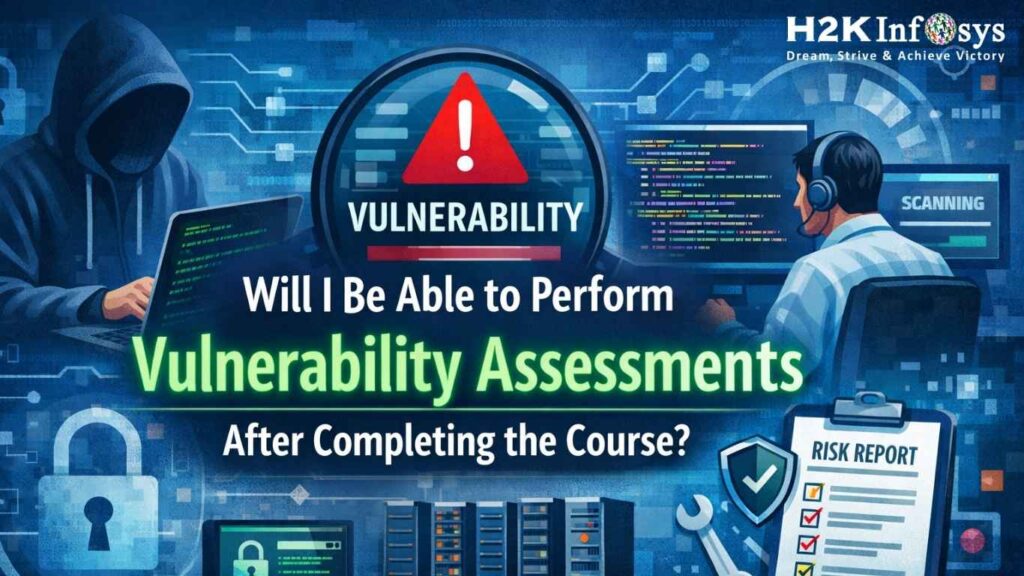Introduction: Why DevSecOps Skills Matter More Than Ever
In a digital world where cyber threats evolve by the hour, organizations must shift from reactive security to proactive integration. This is where DevSecOps enters the scene. Merging development, security, and operations into a unified process, DevSecOps has become a must-have in modern IT. To thrive in 2025, mastering the right DevSecOps Skills is not optional it’s essential.
Whether you’re a software developer, IT professional, or cybersecurity enthusiast, this guide will walk you through the most relevant DevSecOps Skills, DevSecOps Training and Certification paths, and practical tools you need to future-proof your career. We will break down complex ideas into easy-to-understand explanations and help you map out a clear learning path, from beginner to expert.
What Is DevSecOps?
DevSecOps stands for Development, Security, and Operations. It integrates security into the DevOps process, allowing teams to deliver safer software faster. By embedding security at every stage of the SDLC (Software Development Lifecycle), DevSecOps reduces vulnerabilities and ensures compliance with industry standards.
Key Objectives of DevSecOps:
- Secure coding from the start
- Automated security testing
- Continuous monitoring and feedback loops
- Compliance adherence and vulnerability management
- Collaboration across cross-functional teams
Organizations today are rapidly embracing DevSecOps due to its ability to scale security without slowing down development. Instead of seeing security as an isolated phase at the end, DevSecOps Skills promotes it as a continuous activity embedded throughout the entire workflow.
Why Focus on DevSecOps Skills in 2025?
Here are three reasons why DevSecOps Skills will dominate tech hiring trends in 2025:
- Increased Cybersecurity Attacks: Businesses face growing threats like ransomware, phishing, and supply chain attacks. These threats target both infrastructure and application layers, making DevSecOps an essential defense mechanism.
- Cloud-First World: With the surge in Azure and AWS adoption, DevSecOps becomes the backbone of secure deployment. Knowing how to secure cloud infrastructure, manage permissions, and automate defenses gives professionals a significant advantage.
- Compliance Regulations: From GDPR to HIPAA to SOC 2, organizations must meet increasingly strict compliance regulations. DevSecOps makes it easier to document controls, track security tests, and demonstrate accountability to regulators.
Moreover, the market for skilled professionals in this field is expanding rapidly. According to recent surveys, job postings requiring DevSecOps Skills have risen by over 40% year over year.
Core DevSecOps Skills You Must Master
1. Security-as-Code
This refers to embedding security policies directly into your CI/CD pipelines. You must learn how to automate security configurations and version-control your security infrastructure.
Tools to Learn: Terraform, Chef InSpec, Open Policy Agent (OPA), Ansible
This skill ensures repeatability and scalability. Security-as-Code enables teams to enforce rules uniformly and adapt quickly when configurations change. Mastery of this concept is a top priority for organizations with hybrid or multi-cloud environments.
2. Threat Modeling
Understanding how to identify potential threats before they occur is a vital DevSecOps Skill. Learn how to analyze attack surfaces, abuse cases, and data flows to build resilient applications.
Real-World Example: Microsoft’s STRIDE framework is widely used in threat modeling during the design phase. The STRIDE acronym stands for Spoofing, Tampering, Repudiation, Information Disclosure, Denial of Service, and Elevation of Privilege.
3. CI/CD Pipeline Security
You should know how to secure Continuous Integration and Continuous Deployment pipelines. This includes scanning code, managing secrets, securing build agents, and controlling user access.
Tools to Learn: Jenkins, GitHub Actions, Azure Pipelines, CircleCI
Modern DevSecOps pipelines must also include secrets management (e.g., HashiCorp Vault), artifact signing, and access audits. These practices help prevent supply chain attacks and insider threats.
4. Container Security
Containers are lightweight, portable, and fast but they are also vulnerable to misconfiguration and privilege escalation. Securing containers is a vital DevSecOps Skill.
Tools to Learn: Docker, Kubernetes, Aqua Security, Twistlock, Clair
You’ll also need to understand Kubernetes RBAC, Pod Security Policies, network policies, and runtime security best practices.
5. Cloud Security Fundamentals
Whether it’s AWS or Azure, understanding cloud-native security is essential. The Azure DevSecOps Course content focuses heavily on cloud security best practices.
Focus Areas: IAM (Identity and Access Management), encryption at rest and in transit, secure logging, secure storage, policy enforcement using Azure Policy or AWS Config
Security misconfigurations in the cloud remain one of the leading causes of breaches. DevSecOps Skills must include automated cloud configuration checks and continuous compliance validation.
6. Infrastructure as Code (IaC) Scanning
Learn to identify vulnerabilities in your infrastructure code before provisioning. IaC enables rapid infrastructure deployment but can propagate security issues if not reviewed.
Tools to Learn: Checkov, TFLint, Snyk IaC, Terrascan
These tools help scan Terraform, CloudFormation, and ARM templates for common misconfigurations and security risks.
7. Secure Code Review
Manual and automated code reviews are still fundamental. Understanding how to interpret and fix security issues like injection flaws, cross-site scripting, and insecure APIs is a high-value DevSecOps Skill.
Tools: SonarQube, CodeQL, PMD, FindSecBugs
Learning to perform differential code analysis, detect anti-patterns, and follow secure coding guidelines will strengthen your reputation as a trusted DevSecOps professional.
8. Monitoring and Logging
You need to master tools that provide visibility into system behavior, anomalies, and suspicious activity.
Tools: Splunk, ELK Stack, AWS CloudTrail, Azure Monitor, Prometheus
Proactive monitoring enables quick detection of breaches and helps meet incident response SLAs. Make sure your DevSecOps Skills include configuring alerts, dashboards, and log retention policies.
9. Security Testing Automation
Automate SAST (Static Application Security Testing), DAST (Dynamic Application Security Testing), and IAST (Interactive Application Security Testing) to find vulnerabilities early.
Tools: Veracode, Fortify, OWASP ZAP, Burp Suite, AppScan
By integrating these tools into your development lifecycle, you ensure continuous feedback and faster vulnerability resolution.
10. Incident Response Skills
Learn how to react to breaches and vulnerabilities with structured incident response plans. This includes post-mortem analysis, patch management, and audit trails.
Real-World Tip: Many DevSecOps Training Videos include simulated breach-response exercises, enabling learners to apply theory to practice.
DevSecOps Training and Certification: Where to Start
Mastering DevSecOps Skills requires hands-on practice and certification. Here are the top DevSecOps Training and Certification options in 2025.
Best DevSecOps Certifications
1. Certified DevSecOps Professional (CDP)
One of the most recognized credentials. It includes hands-on labs, real-world scenarios, and open-book exams. It’s ideal for learners with foundational experience in both DevOps and Security.
2. Azure DevSecOps Course by Microsoft
Ideal if you’re working in Azure environments. Covers identity, secrets management, monitoring, and CI/CD integration. Highly recommended for professionals targeting enterprise cloud security roles.
3. DevSecOps Foundation by DevOps Institute
Great for beginners. Teaches the cultural, philosophical, and technical aspects of DevSecOps in digestible modules.
4. SANS SEC540: Cloud Security and DevSecOps Automation
Industry-recognized course focusing on security automation and cloud platforms. Includes capstone projects and expert-led walkthroughs.
5. DevSecOps Certification Free Resources
Many platforms offer beginner-level courses and DevSecOps Tutorial PDFs for free to help you start without investment. These can be an excellent stepping stone before committing to advanced programs.
Learning Formats to Master DevSecOps Skills
DevSecOps Training Videos
Visual learners benefit most from DevSecOps Training Videos. These include walkthroughs, real-time scenarios, and tool demos.
Tips:
- Choose videos with hands-on projects
- Follow lab exercises actively
- Re-watch complex topics until you grasp the concept
DevSecOps Tutorial PDFs
A well-organized DevSecOps Tutorial PDF offers concise, searchable content you can reference during hands-on labs or job tasks. Many PDFs also come with diagrams, cheat sheets, and configuration templates.
Online Labs and Simulations
Simulated environments help reinforce concepts. Many training platforms offer sandbox labs to practice real-time DevSecOps Skills. These are particularly useful when learning cloud services and automation tools.
Building Your DevSecOps Skills: A Step-by-Step Roadmap
Step 1: Understand Core DevOps Principles
Before diving into security, you need a firm grasp of CI/CD, infrastructure automation, and monitoring. DevOps knowledge sets the foundation.
Step 2: Learn Secure Coding
Familiarize yourself with OWASP Top 10 and CWE vulnerabilities. Secure coding should become second nature.
Step 3: Automate Security
Begin with SAST and DAST tool integrations into your CI/CD pipeline. Gradually include IaC scans, dependency checks, and runtime analysis.
Step 4: Practice with Real Tools
Use open-source tools to build hands-on experience. Try GitHub Actions for CI, Docker for containerization, and SonarQube for scanning.
Step 5: Earn Certifications
Choose from Best DevSecOps Certifications that match your goals. The Azure DevSecOps Course is recommended for cloud-native paths.
Step 6: Document and Share
Blog about your learning, contribute to open-source projects, or publish DevSecOps Tutorial PDFs to demonstrate your skills.
DevSecOps Skills in Real-World Scenarios
Case Study 1: Financial Sector
A global bank used DevSecOps automation to reduce code-to-deploy time from 5 days to 2 hours while achieving SOC 2 compliance. This was made possible by integrating IaC scanning, container security, and automated policy checks.
Case Study 2: Healthcare Startup
By integrating SAST tools into their GitHub pipeline, a healthcare startup caught 78% of vulnerabilities before code reached production. This resulted in faster releases and increased trust from their end users.
Common Mistakes to Avoid When Learning DevSecOps Skills
- Skipping DevOps Basics: Without knowing pipelines, your security tools won’t integrate properly.
- Tool Overload: Learn one tool at a time. Avoid chasing every trending technology.
- No Real Practice: Reading isn’t enough. Watch DevSecOps Training Videos, then apply them in real projects.
- Lack of Soft Skills: Communication and collaboration are just as important as technical skills in DevSecOps.
Emerging DevSecOps Trends in 2025
- AI-Driven Security Testing: Tools like DeepFactor and Codacy AI are automating even complex testing and providing recommendations based on ML models.
- Shift-Left Everywhere: Security practices are being applied earlier in the development process than ever before, often during design and planning.
- Integrated DevSecOps Platforms: Unified tools are becoming the norm to simplify operations and ensure seamless security adoption.
- Zero Trust Architecture: DevSecOps practitioners are expected to implement zero trust principles across networks and applications.
Key Takeaways
- DevSecOps Skills are critical for secure, scalable software in 2025.
- Invest time in learning both security principles and automation tools.
- Certifications like Azure DevSecOps Course and Certified DevSecOps Professional add credibility.
- Free DevSecOps Certification resources and DevSecOps Tutorial PDFs offer cost-effective learning paths.
- Practice regularly using DevSecOps Training Videos and sandbox environments.
- Keep up with trends to stay relevant and competitive.
Conclusion
Mastering DevSecOps Skills in 2025 isn’t just a career advantage it’s a necessity. With the right DevSecOps Training and Certification, hands-on learning, and real-world application, you can lead the way in secure software delivery.
Start your DevSecOps journey with H2KInfosys and gain the practical skills to stand out in today’s cloud-driven world. Enroll now for expert-led, placement-focused training!












